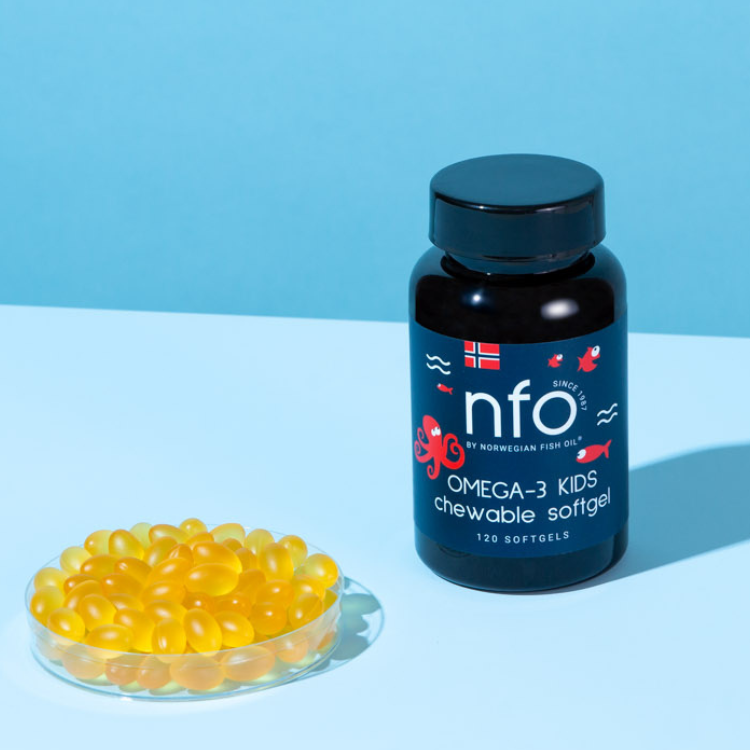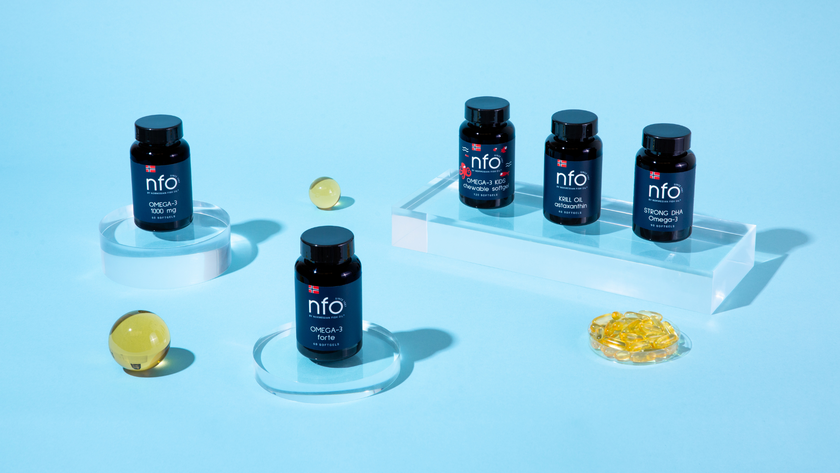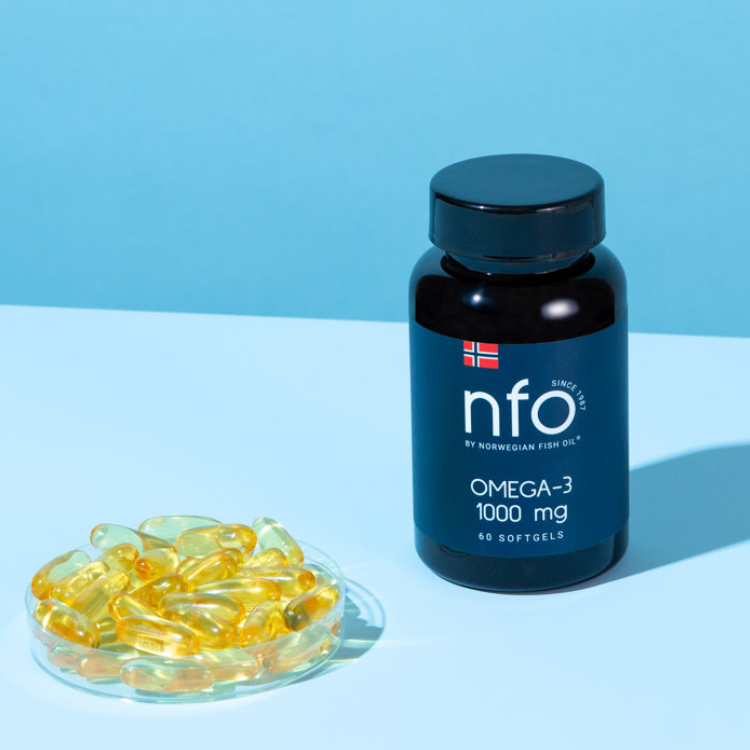فيتامين د: فيتامين أشعة الشمس
يُعد نقص فيتامين د عاملًا مُوثَّقًا جيدًا في الإصابة بالاضطراب العاطفي الموسمي، إذ إن قلة التعرض لأشعة الشمس خلال أشهر الشتاء تُحد من قدرة الجسم على تصنيع هذا العنصر الغذائي الأساسي. يدعم فيتامين د إنتاج السيروتونين، وهو ناقل عصبي يرتبط غالبًا بتنظيم المزاج (تشنغ وآخرون، ٢٠٢٠). تشير الأبحاث إلى أن تناول مكملات فيتامين د يُمكن أن يُحسّن أعراض الاكتئاب لدى الأفراد الذين يعانون من مستويات منخفضة منه (تشنغ وآخرون، ٢٠٢٠).
المغنيسيوم: عازل للتوتر
يشارك المغنيسيوم في أكثر من 300 عملية كيميائية حيوية في الجسم، بما في ذلك تلك التي تنظم المزاج والتوتر. وقد رُبط انخفاض مستويات المغنيسيوم بزيادة القلق وأعراض الاكتئاب (بيكرينج وآخرون، 2020). يساعد المغنيسيوم في تنظيم محور الوطاء-الغدة النخامية-الكظرية (HPA)، وهو نظام أساسي لإدارة التوتر. وقد أظهرت دراسات، مثل المراجعة المنهجية التي أجراها بوتوري وآخرون (2020)، أن مكملات المغنيسيوم يمكن أن تخفف أعراض الاكتئاب، وخاصةً لدى الأفراد الذين يعانون من توتر مزمن. ويمكن أن يدعم إدراج الأطعمة الغنية بالمغنيسيوم، مثل المكسرات والبذور والخضراوات الورقية، في نظامك الغذائي، أو استخدام المكملات الغذائية، الصحة النفسية خلال الأشهر المظلمة.
مجموعة فيتامينات ب: معززات الطاقة والمزاج
تلعب فيتامينات ب، وخاصةً ب6، وب9 (حمض الفوليك)، وب12، دورًا حاسمًا في صحة الدماغ وإنتاج النواقل العصبية مثل السيروتونين والدوبامين. يمكن أن يؤدي نقص هذه الفيتامينات إلى تفاقم أعراض الاكتئاب وانخفاض مستويات الطاقة (يانغ وآخرون، 2020). وقد أبرزت الأبحاث فوائد مكملات فيتامين ب في تقليل أعراض الاكتئاب، وخاصةً لدى الأفراد الذين يعانون من نقص سابق. يمكن أن يساعد تناول الأطعمة الغنية بفيتامينات ب بانتظام، مثل الحبوب الكاملة والبيض والبقوليات، أو استخدام مكملات فيتامينات ب عالية الجودة، في دعم الصحة النفسية خلال أشهر الشتاء.
أحماض أوميغا 3 الدهنية: غذاء للدماغ
تُعد أحماض أوميغا 3 الدهنية، وخاصةً حمضي الإيكوسابنتاينويك (EPA) والدوكوزاهيكسانويك (DHA)، أساسيةً للحفاظ على صحة الدماغ. تتميز هذه الدهون بخصائص مضادة للالتهابات وتؤثر على إنتاج النواقل العصبية التي تُنظم المزاج (نج وآخرون، 2017). وقد وجد تحليل تلوي أجراه نج وآخرون (2017) أن مكملات أوميغا 3 تُحسّن بشكل ملحوظ أعراض الاكتئاب لدى الأفراد المصابين بالاكتئاب السريري. أما بالنسبة للأفراد المصابين بالاضطراب العاطفي الموسمي، فإن تناول الأسماك الدهنية مثل السلمون والماكريل والسردين، أو تناول مكملات زيت السمك، يُمكن أن يُوفر لهم هذه العناصر الغذائية الأساسية.
الميلاتونين: تنظيم دورات النوم والاستيقاظ
الميلاتونين، وهو هرمون ينظم النوم، غالبًا ما يضطرب لدى المصابين بالاضطراب العاطفي الموسمي بسبب قلة التعرض للضوء الطبيعي. استعادة دورة النوم والاستيقاظ المتوازنة يمكن أن يخفف بعض أعراض الاكتئاب الموسمي. تشير الأبحاث إلى أن تناول مكملات الميلاتونين بجرعات منخفضة مساءً يمكن أن يُحسّن جودة النوم والمزاج لدى المصابين بالاضطراب العاطفي الموسمي (ويسكوت وآخرون، ٢٠٢٠). مع أن الميلاتونين آمن بشكل عام، إلا أنه من الضروري استخدامه تحت إشراف طبي لتجنب الآثار الجانبية المحتملة أو التفاعلات مع الأدوية الأخرى (هيلث لاين، ٢٠٢٢).
نبتة سانت جون: مضاد طبيعي للاكتئاب
استُخدمت نبتة سانت جون (Hypericum perforatum) لقرون كعلاج عشبي للاكتئاب. وقد دعمت العديد من الدراسات فعاليتها في علاج الاكتئاب الخفيف إلى المتوسط، بما في ذلك تحليل تلوي أجراه نج وآخرون (2017). يُعتقد أن نبتة سانت جون تعمل عن طريق زيادة توافر السيروتونين في الدماغ. ومع ذلك، من الضروري توخي الحذر عند استخدام هذا المكمل الغذائي، إذ قد يتفاعل مع أدوية مختلفة، بما في ذلك مضادات الاكتئاب، وحبوب منع الحمل، ومميعات الدم (NCCIH، 2020). يُنصح باستشارة مقدم الرعاية الصحية قبل البدء بتناوله.
الحديد: مكافحة التعب وضبابية الدماغ
يمكن أن يُحاكي نقص الحديد أعراض الاكتئاب ويفاقمها، بما في ذلك التعب وصعوبة التركيز. يلعب الحديد دورًا محوريًا في نقل الأكسجين وإنتاج الطاقة، مما يجعله عنصرًا غذائيًا أساسيًا للصحة النفسية. النساء، على وجه الخصوص، أكثر عرضة لخطر نقص الحديد. يُمكن أن يُساعد إدراج الأطعمة الغنية بالحديد، مثل اللحوم الخالية من الدهون والبقوليات والحبوب المدعمة، في نظامك الغذائي، أو تناول مُكمّلات غذائية تحت إشراف طبي، في معالجة النقص وتحسين المزاج (يانغ وآخرون، ٢٠٢٠).
الزنك: دعم وظيفة الناقل العصبي
يُعد الزنك ضروريًا للحفاظ على صحة وظائف الدماغ، وقد ثبت تأثيره على نشاط النواقل العصبية. يرتبط انخفاض مستويات الزنك بزيادة خطر الإصابة بالاكتئاب. تشير الدراسات إلى أن مكملات الزنك يمكن أن تُخفف أعراض الاكتئاب، خاصةً عند دمجها مع العلاجات التقليدية المضادة للاكتئاب (بيكرينج وآخرون، ٢٠٢٠). إضافة أطعمة غنية بالزنك، مثل المحار وبذور اليقطين والفاصوليا، إلى نظامك الغذائي، أو استخدام مكملات غذائية، يمكن أن يُساعد في دعم الصحة النفسية خلال أشهر الشتاء.
نصائح عملية لاستخدام المكملات الغذائية
- استشر مقدم الرعاية الصحية: استشر دائمًا أخصائي الرعاية الصحية قبل البدء في تناول أي مكمل جديد لتجنب التفاعلات المحتملة أو الآثار الجانبية.
- اختر المنتجات عالية الجودة: اختر المكملات الغذائية من العلامات التجارية ذات السمعة الطيبة والتي تخضع لاختبارات الطرف الثالث.
- مراقبة الجرعات: اتبع الجرعات الموصى بها وتجنب الإفراط في تناولها، مما قد يؤدي إلى السمية.
- الجمع مع تغييرات نمط الحياة: قم بإقران المكملات الغذائية باستراتيجيات أخرى قائمة على الأدلة، مثل العلاج بالضوء، وممارسة التمارين الرياضية بانتظام، واتباع نظام غذائي متوازن، للحصول على أفضل النتائج.
خاتمة
يمكن أن يؤثر الاضطراب العاطفي الموسمي بشكل كبير على الصحة النفسية والجسدية، إلا أن التدخلات الغذائية تُقدم وسيلة واعدة لتخفيف الأعراض. وقد أثبتت الفيتامينات والمكملات الغذائية، مثل فيتامين د، والمغنيسيوم، ومجموعة فيتامينات ب، وأحماض أوميغا 3 الدهنية، والميلاتونين، ونبتة سانت جون، والحديد، والزنك، فعاليتها في تخفيف أعراض الاكتئاب. من خلال دمج هذه العناصر الغذائية في روتينك اليومي، إلى جانب التوجيه المهني وتغيير نمط حياتك، يمكنك تعزيز قدرتك على مواجهة الاكتئاب الموسمي والحفاظ على نظرة أكثر تفاؤلاً خلال الأشهر الأكثر ظلمة.
مراجع
- بوتوري، أ. وآخرون (2020). دور وتأثير المغنيسيوم في الاضطرابات النفسية: مراجعة منهجية. مجلة العناصر الغذائية ، 12(6)، 1661. متوفر على: https://www.mdpi.com/2072-6643/12/6/1661
- تشنغ، واي.-سي، وآخرون (2020). تأثير مكملات فيتامين د على المشاعر السلبية: مراجعة منهجية وتحليل تلوي. متوفر على: https://pubmed.ncbi.nlm.nih.gov/32365423/
- هيلث لاين (٢٠٢٢). الميلاتونين. متوفر على: https://www.healthline.com/nutrition/melatonin
- نج، كيو إكس، وآخرون (2017). الاستخدام السريري لعشبة العرن المثقوب (Hypericum perforatum) في علاج الاكتئاب: تحليل تلوي. متوفر على الرابط: https://pubmed.ncbi.nlm.nih.gov/28064110/
- المركز الوطني للصحة التكميلية والتكاملية (NCCIH). نبتة سانت جون. متوفر على الرابط: https://www.nccih.nih.gov/health/st-johns-wort
- بيكرينغ، ج. وآخرون (2020). حالة المغنيسيوم والتوتر: إعادة النظر في مفهوم الحلقة المفرغة. مجلة فرونتيرز إن سايكياتري ، 11، 1012. متوفر على: https://www.ncbi.nlm.nih.gov/pmc/articles/PMC7761127/
- ويسكوت، دي إل، وآخرون (2020). النوم في الاضطراب العاطفي الموسمي. مجلة الاضطرابات العاطفية ، 275، 269-276. متوفر على: https://www.sciencedirect.com/science/article/abs/pii/S2352250X19301460
- يانغ، ي. وآخرون (2020). دور النظام الغذائي وسلوك الأكل والتدخلات التغذوية في الاضطراب العاطفي الموسمي: مراجعة منهجية. مجلة فرونتيرز في علم النفس ، 11، 1451. متوفر على: https://www.frontiersin.org/articles/10.3389/fpsyg.2020.01451/full









